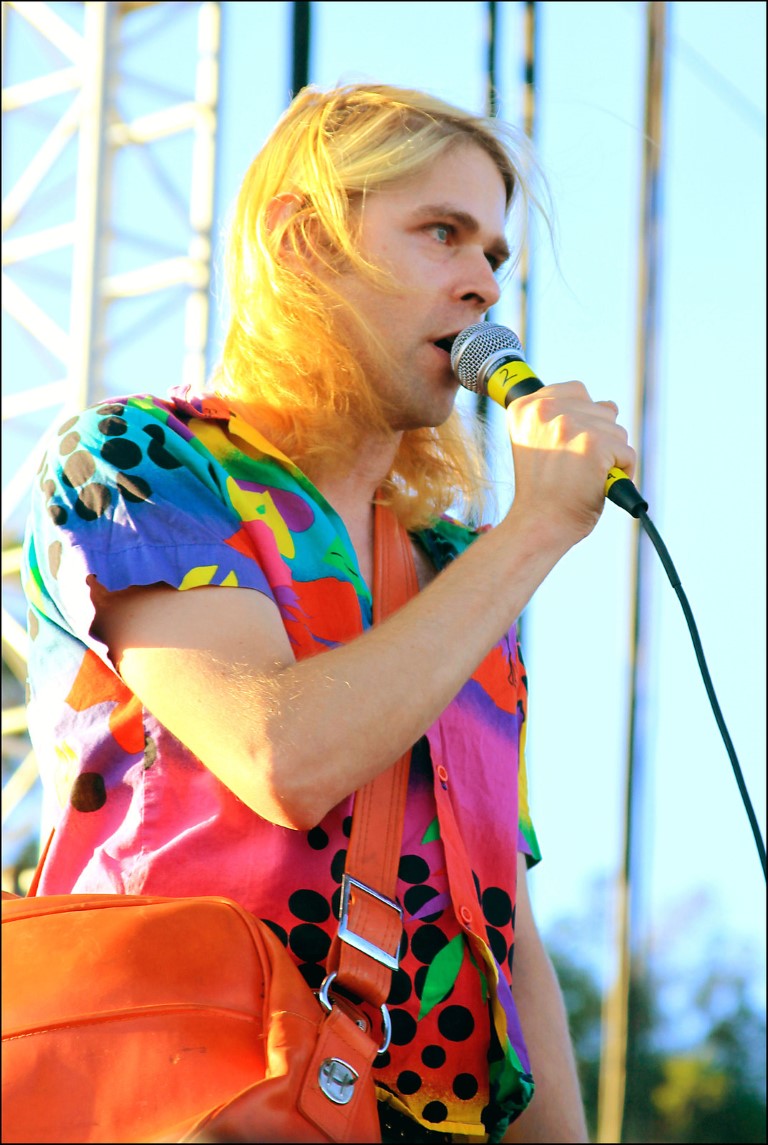
Public discusses importance of artist’s political views when listening to their music
By CJ Sommerfeld, Staff Writer
Lo-fi hypnagogic pop artist Ariel Pink is just one of the many ‘Stop the Steal’ rally-goers whose attendance resulted in a less than favorable post-protest outcome. Two days after the pro-Trump rally, a Tweet from his label, Mexican Summer, let the public know that they had ended their ‘working relationship’ with Pink.
Pink’s alt-right political views were nothing new to the public, as his Twitter has been a haven for such posts. Over the years, he has similarly expressed opinions that align with these white-nationalist ideals via interviews: “It’s not illegal to be racist”, “I love paedophiles too, and I love necrophiliacs”, which again, are nothing new to the public’s ears.
Pink’s attendance at the Stop the Steal protest—seen by some as a pro-trump and radical-right rally—was not an action that veered far from the ideals which he had previously shared, nor from those which many others had shared about him. However, despite him only participating in the demonstration on the White House lawn and not joining the Capitol Building storm, he was dropped from his record label. The Other Press took to social media to ask the public whether they would stop interacting with an artist’s works if the artist’s ideologies differed from their own.
One interviewee—a high school art teacher named Jenny, notes that they would continue to listen to an artist’s music regardless of the artist’s political views. “Absolutely. Music is about passion.” Vishal replies similarly: “Art is still art whether or not it offends you.” Mr. W continues these ideas, noting that an artist is simply a creator, and it is the product which he cares for. “Even if the person is locked up for murder or rape or whatever, if he or she can still perform so be it.” A musician named Fred, replies to this dilemma: “I can separate the integrity […] of a piece of art from the creator’s shortcomings. I can still enjoy a song by someone I disagree with deeply.” As does Phil: “A person’s beliefs or political views are a non-issue for me. Everyone has their own reasons for supporting policies and ideas, who are we to say that that they’re right or wrong? If we start putting people on this side or that, we are guaranteed to find enemies. Good art will transcend the artist, I can enjoy a song without ever knowing the artist.”
Patrick—a VCC Jazz graduate and ex-manager of a Vancouver music venue—however notes that an artist’s ethics do create slight barriers when listening to their songs: “I can enjoy the music to an extent still, but always wind up not listening to them as much.” He compares this to spending time with people who similarly have contrasting perspectives: “Same as how I don’t hang out often with but can enjoy people who have very divergent views.” Reverting back to music, he elaborates, “Their lyrics take on a new meaning once I understand their views more clearly and can very often ruin a song. For example, Ted Nugent’s ‘Cat Scratch Fever’ after finding out he advocates raping women.”
On the contrary, only a few note that they would halt listening to an artist upon learning that their political views differ. “I absolutely care about their political leanings.” Lauren tells the Other Press. “I can’t enjoy a musician’s music if they are against human rights.” Mickey agrees. “I don’t believe we should separate the art from the artist.” Sofia, who is a visual artist herself, concludes that “It’s hard for me to respect an artist’s practice if I know they’re backing up ideologies based on racism, violence and so many other wack concepts.”


